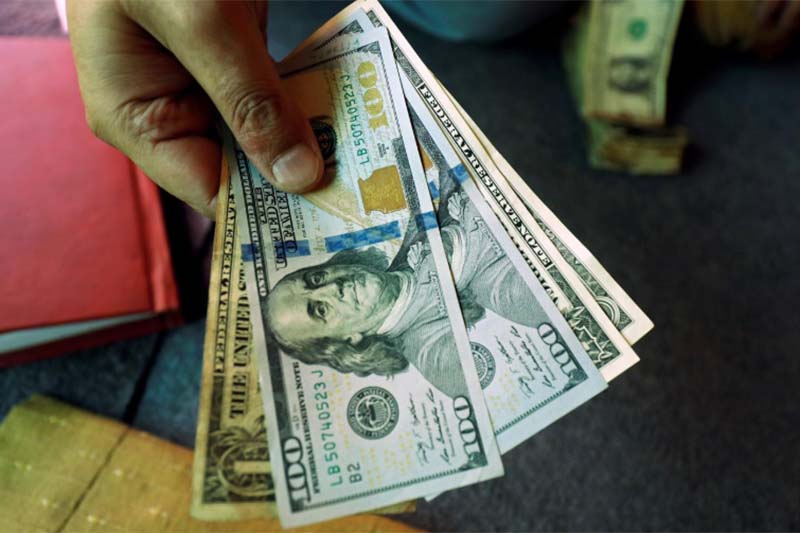FOREX: Dollar grinds higher as US-China tensions, virus unnerve investors
- Dollar rises vs most major currencies
- Offshore yuan down despite China data boost
- Sterling withers as UK GDP disappoints
LONDON: The US dollar edged up on Tuesday as diplomatic tensions between the United States and China and rising coronavirus cases knocked investor confidence, although moves in currency markets were small in a quiet session.
While stock markets fell as investors turned cautious, the safe-haven yen was little changed and the Swiss franc - another currency traders buy in times of uncertainty - rose only slightly versus the euro, suggesting limited concern among FX investors.
A resurgence of novel coronavirus infections has caused some areas to place new restrictions on business activity, injecting some caution into the multi-month stock market rally that is betting on a rapid economic recovery.
Markets now face an additional threat from tit-for-tat retaliation between Washington and Beijing over access to U.S. financial markets, civil liberties in Hong Kong and territorial claims in the South China Sea.
"US-China tensions about the situation in the South China Sea helped US dollar and weighed on cyclical currencies overnight, with the trade weighted dollar remaining firmly in the range of recent weeks," ING analysts said.
However, they said progress in the European Union's efforts to agree a recovery fund package this week would support the euro and limit the dollar's rise.
Against a basket of currencies the dollar index was last up 0.1% at 96.662, keeping it firmly with a tight range it has traded in since May.
The euro was down 0.1% against the dollar at $1.1331.
Currencies heavily exposed to global trade sentiment were down, but not by much. The Australian dollar lost 0.1% to $0.6930, while China's offshore yuan slipped to 7.0185 yuan per dollar.
The yuan was little moved by data showing Chinese imports in June rose for the first time since the coronavirus panic paralysed the economy, as investors focused on tensions with Washington.
"The Hong Kong problem could potentially lead to new trade friction. Negative developments on either front could cause stocks to adjust lower, and drive some safe-haven flows to the dollar and the yen," said Junichi Ishikawa, senior foreign exchange strategist at IG Securities.
In a busy day for data, Germany's ZEW economic sentiment indicator is due at 0900 GMT. US inflation numbers for June will follow at 1230 GMT.
The British pound fell after the economy rebounded in May at a much slower pace than expected, calling into question the V-shaped recovery many economists have been forecasting. Sterling was last down 0.3% at $1.2513.






